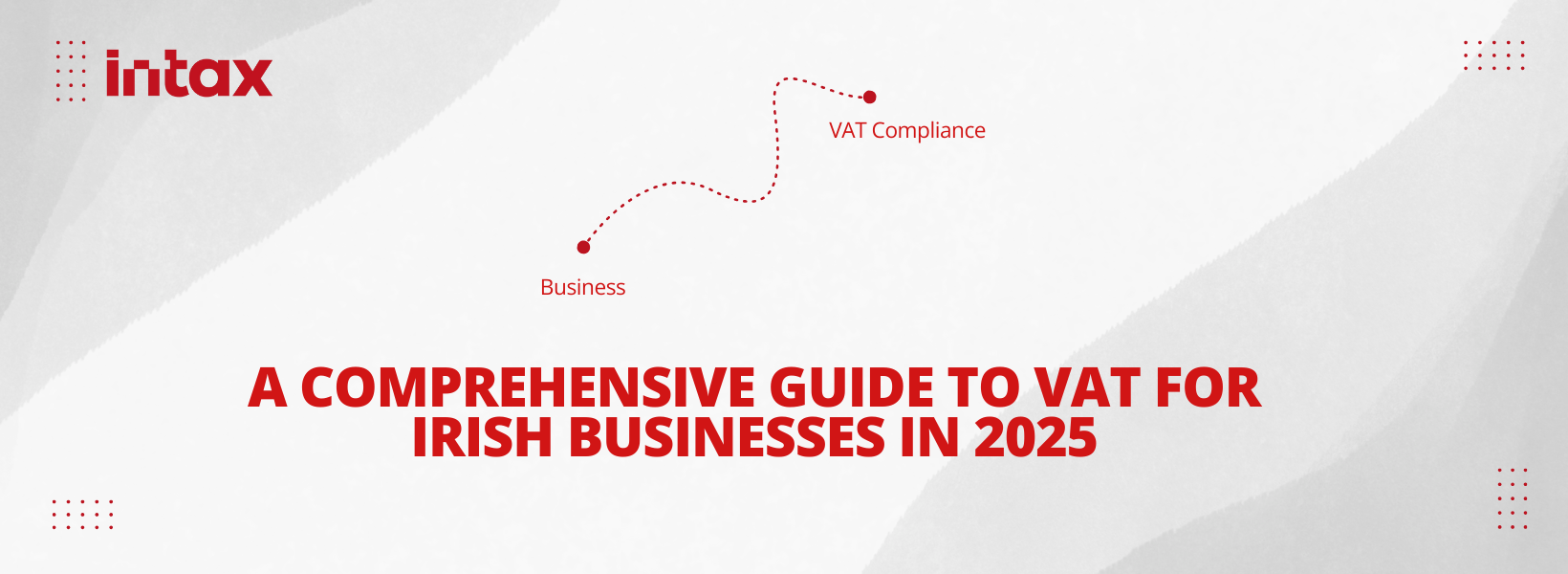Introduction
Value-Added Tax (VAT) is a fundamental component of Ireland’s taxation system, affecting businesses across various sectors. Staying informed about VAT regulations is essential for compliance and effective financial management. This guide provides an overview of VAT as it stands in 2025, covering registration requirements, current rates, filing procedures, and recent updates.
1. Understanding VAT and Registration Requirements
VAT is a tax on the consumption of goods and services, collected at each stage of production and distribution. Businesses in Ireland are required to register for VAT if their annual turnover exceeds specific thresholds:
- €37,500 for services.
- €75,000 for goods.
Even if your turnover is below these limits, voluntary registration can be beneficial, allowing you to reclaim VAT on business-related purchases. Registration is conducted online through the Revenue Online Service (ROS).
Pro Tip: Regularly monitor your turnover to ensure timely VAT registration and avoid potential penalties.
2. Current VAT Rates in Ireland
As of January 1, 2025, the VAT rates in Ireland are structured as follows:
- Standard Rate: 23%
- Reduced Rate: 13.5%
- Second Reduced Rate: 9%
- Livestock Rate: 4.8%
- Flat-Rate Compensation for Farmers: 5.1%
Notably, the 9% rate applies to specific sectors, including certain energy supplies. For detailed information on which goods and services fall under each rate, refer to the Revenue’s official guidelines.
Pro Tip: Ensure accurate application of VAT rates to your products or services to maintain compliance and avoid discrepancies.
3. Filing VAT Returns and Payment Deadlines
VAT-registered businesses must file periodic returns to report VAT collected and reclaimable. The standard filing frequency is bi-monthly, with returns due by the 19th day of the month following the end of the taxable period. For those using the Revenue Online Service (ROS), the deadline extends to the 23rd.
Pro Tip: Utilize ROS for efficient filing and to benefit from extended deadlines.
4. Recent Updates and Changes in 2025
In the 2025 budget, several VAT-related changes were introduced:
- Energy Supplies: The temporary reduction of the VAT rate on gas and electricity to 9% has been extended until April 30, 2025.
- Heat Pumps: Effective January 1, 2025, the VAT rate on the supply and installation of heat pumps has been reduced from 23% to 9% to encourage sustainable energy solutions.
Pro Tip: Stay updated with budget announcements to take advantage of changes that may benefit your business operations.
Conclusion
Navigating VAT obligations is a critical aspect of running a business in Ireland. Understanding registration requirements, applying the correct rates, adhering to filing deadlines, and staying informed about legislative changes are essential steps to ensure compliance and financial efficiency.
Managing VAT can be complex, but you don’t have to do it alone. At Intax, we offer expert tax services tailored to your business needs. Our team stays abreast of the latest tax regulations to provide you with accurate and timely advice. Contact us today to learn how we can assist you in navigating your VAT responsibilities effectively.





